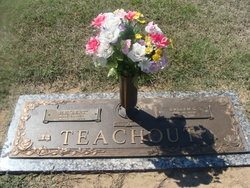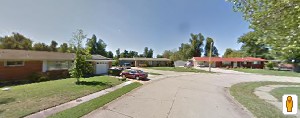 Most people outlive their parents, but few anticipate doing so. Even when it was agonizingly clear that my mother was dying, I never said to myself, Soon I’ll never see her again. It may be that the finality of death is harder to grasp than any of life’s other hard realities. Whatever the reason, I didn’t expect the sharp jolt that briefly shook me when my sister-in-law e-mailed me a photo of the twin graves in which my parents are buried, marked by a single bronze tablet that shows, for the first time, the dates on which they both died.
Most people outlive their parents, but few anticipate doing so. Even when it was agonizingly clear that my mother was dying, I never said to myself, Soon I’ll never see her again. It may be that the finality of death is harder to grasp than any of life’s other hard realities. Whatever the reason, I didn’t expect the sharp jolt that briefly shook me when my sister-in-law e-mailed me a photo of the twin graves in which my parents are buried, marked by a single bronze tablet that shows, for the first time, the dates on which they both died.
My mother, who occasionally visited the cemetery where she now rests, once confessed to me that it made her sick to her stomach when she first saw her name on that tablet, which my father had prudently purchased long before the fact, arranging for the two of them to be buried next to his own mother. I have no such well-laid plans: I intend to donate as many of my organs as can be usefully harvested, and I don’t care what happens to the rest of me after that. But it was important to my parents that they arrange in advance for the disposal of their remains, and being basically conventional people, they did the customary thing.
I wonder if either of them guessed how often I’d think about them after they were gone. Not surprisingly, I did so when my first play opened in New York, knowing that the occasion would have meant the world to them. But it’s the routine occasions, not the special ones, that mean the most to me. I think of my mother, for instance, whenever I take a cab down to the theater district to see a show, that being the time when I usually called her–as I did most days–to chat about whatever might be on our minds. I think of my father, by contrast, whenever I happen to see Perry Mason on TV, for he loved nothing more than to guess who did it midway through each episode, if not sooner. (He usually got it right, too.)
 Today is my beloved brother’s birthday, so it stands to reason that our parents should be on my mind. It is a source of ceaseless pleasure to me–as well as a modest amount of friendly envy–that David and Kathy now live in the house where the two of us grew up. While our shared childhood wasn’t perfect, it was mostly very happy. We owe that happiness to Bert and Evelyn Teachout, who spent the whole of our time in that house doing all that was in their power to prepare us for whatever life might hold in store outside it.
Today is my beloved brother’s birthday, so it stands to reason that our parents should be on my mind. It is a source of ceaseless pleasure to me–as well as a modest amount of friendly envy–that David and Kathy now live in the house where the two of us grew up. While our shared childhood wasn’t perfect, it was mostly very happy. We owe that happiness to Bert and Evelyn Teachout, who spent the whole of our time in that house doing all that was in their power to prepare us for whatever life might hold in store outside it.
I’ve been reading Michael Ignatieff’s biography of Isaiah Berlin, who made this observation thirteen years before his death in 1997:
As for the meaning of life, I do not believe that it has any. I do not at all ask what it is, but I suspect it has none and this is a source of great comfort to me. We make of it what we can and that is all there is about it.
We are such stuff/As dreams are made on, and our little life/Is rounded with a sleep, says Prospero in The Tempest. My parents made of their little lives what they could, and they didn’t ask what it meant, either. Perhaps it was because they already knew the answer: they built a house and raised two sons whom they loved with all their hearts. That was dream enough for them. I would never pretend that every night I slept under their roof was free of shadows, but I never doubted for a moment that they loved me. Nor do I doubt that the new owners of 713 Hickory Drive feel the same way.
